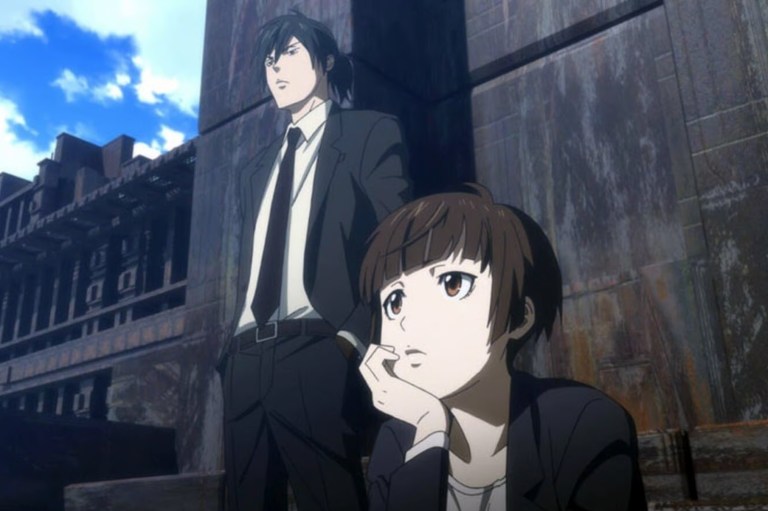
11 Badass Signs You’ve Moved On From Your Narcissistic Ex
You’re no longer part of the narcissist’s captive audience, waiting to be “chosen.” You’ve chosen yourself instead.
1. You feel little to no desire to reach out to them.
Survivors of narcissistic abuse usually encounter a heavy period of detoxing from the addictive toxicity of the relationship in the early stages of healing. They may relapse into wanting to reach out to their former partner because they are trauma bonded to them through the intense experiences of abuse. Once they’ve remained No Contact for a suitable period of time, however, these cravings begin to subside and survivors start to get in touch with the reality of the abuse they went through. They reach an unsettling amount of indifference towards the narcissist that is both unfamiliar yet exciting. This new indifference and neutrality are signs that you are healing and moving forward. Although it may feel uncomfortable at first to no longer have such strong emotions towards someone who terrorized you, it is a good sign that you’re finally severing the traumatic bond you once had with them.
2. You have little to no inclination to respond if they reach out to you.
When narcissists reach out in an attempt to bring you back to the vicious cycle of abuse, it is known as “hoovering.” Hoovering can occur through sudden texts, voicemails, missed calls, e-mails, letters, or even a third party checking up on you on the narcissist’s behalf. Hoovering can be intense, especially if you happened to “discard” or end the relationship with your abusive ex first. Where once you used to give into their demands, now you find that you no longer wish to entertain their attempts or watch them escalate. By now, you’ve recognized the narcissist’s games and are practically yawning at the sight of another hoovering attempt sent under an anonymous e-mail address and fake phone number. Rather than giving into their mind games, you’re being proactive at resisting and documenting their attempts instead (this will come in handy should you ever need to take out a restraining order).
3. You no longer look them up on social media.
This is a huge milestone and should not be discounted, especially given the amount of emotional backpedaling that can occur when a survivor gives into the craving to check up on a toxic ex on a social media platform. Narcissists rely on the fact that their victims will be so traumatized that they will search for information about them post-breakup. They even tailor their photos and status updates to provoke their former victims into responding to them – it’s all a sick and twisted power play meant to bring the victim back into the vicious cycle of manipulation. However, survivors who have empowered themselves to detach from their abusers will find that they no longer feel an intense need to know anything about the narcissist or his/her whereabouts. Instead, they find themselves more anxious about making sure that their narcissist no longer has access to them on any social media platform.
4. You could not care less about who they are or aren’t dating.
When you were in the dysfunctional relationship, you were constantly made to walk on eggshells at the possibility of being replaced. You were triangulated and toyed with constantly, made to feel defective, less than and less desirable than whoever the narcissistic abuser compared you to. Now that you’ve gone through the grieving process and done the difficult work of healing your core wounds, you realize that you are irreplaceable and that the narcissist is the defective one, not you. You know that the person they’ve ensnared in their toxic web is just another victim and will inevitably go through the same cycle of abuse, so you’ve taken yourself out of the equation completely.
5. You no longer compare yourself to their past or current victims.
It used to be that you were always ruminating over the narcissist’s endless comparisons concerning you and their other harem members. Now? You couldn’t give two shits about anyone they tried to claim was more appealing – because you know that whoever they’re idealizing now will inevitably be thrust off the pedestal and devalued later. You’re no longer part of the narcissist’s captive audience, waiting to be “chosen.” You’ve chosen yourself instead. You have a firm sense of your own self-worth and you now know that you cannot be compared in your unique beauty or strengths. And those dysfunctional love triangles? You know that some other victim is now being subjected to them – and thankfully, you’re not the one putting up with it.
6. You’re living for you – and being a total badass while doing it.
Perhaps in the initial stages, you were using all of the fuel you got from the break-up to motivate you to ‘move on’ and forward as intensely as possible. Perhaps a small part of you even wanted to ensure that your narcissistic ex saw how well you were doing without them; you may have even tried to fast-forward your healing by dating someone else too early on. Now, however, you find that you have no need to perform. You’re living just for you and you’re savoring life with a new sense of appreciation for the newfound freedom and peace it offers. You’re taking your time and going at your own pace without the need to compete with them and their public façade – instead, you’re giving yourself all the space you need to heal.
7. You’ve reached a whole new level of success – professionally and personally, without them.
Your success has skyrocketed without them and you are rebuilding your life on your own terms – everything from your career to your friendships is being remodeled to better suit your growing sense of abundance. It seems new opportunities and amazing people are gravitating towards you like a magnet – and it’s because you’ve cleared the space for them in your life to enter. You now know you are worthy of all the victories life has to offer.
You are now loving spending time with people who value and nurture you. You’re also spending some much needed quality time alone – getting to know yourself, enjoying your own company and not settling for anything less than the peace and ecstasy you deserve.
8. You have reached a whole new level of emotional liberation.
Now that your emotions aren’t constantly being manipulated by an emotional instigator, you find yourself seeking refuge within your inner guidance and intuition more often. You cut ties with toxic people with much more ease and find yourself unwilling to put up with bullshit. You validate yourself and honor your feelings. You no longer second-guess yourself as much as you used to and you certainly do not engage in as much negative self-talk as you used to. Instead, your usual self-blame and self-criticism have been replaced by affirming thoughts about your strengths and progress. You embrace the ups and downs of the healing journey, knowing that it is all adding to your transformation. You give yourself permission to grieve, to be joyful, to be angry, to be calm – whatever arises, you’re open to it, because you know that processing your emotions in a healthy way is an important part of paving the path back to freedom.
9. You look and feel ten times younger.
During the relationship, your cortisol levels were likely on overdrive and your immune system probably took a severe hit. You probably experienced major changes in weight, your sleeping patterns, and your anxiety levels. Narcissistic abuse has the potential to change you – mind, body, and soul. However, as you become more of an empowered survivor, you find yourself reclaiming power over your own body and psyche. Many survivors find that a daily exercise regimen, yoga, and meditation can help restore their bodies to optimal levels post-trauma.
Now that you’re taking such better care of yourself in an environment with far less toxic stress, you’re now looking, feeling and acting as if you were ten times younger. People notice your increased levels of youthfulness and vitality; you notice that you have more energy, your skin has cleared up, you’re getting sick less often and your physique has become much more fit and agile.
10. You don’t question yourself as much as you used to. You revel in the certainty of your own self-worth.
There’s nothing more attractive than an empowered survivor who feels their worth deep down in their bones. You used to work so hard to please a person who could never be pleased – no matter what you did or what you looked like. Now, you cherish your beauty inside and out. Now, you please yourself. Your own pleasure is your priority. You celebrate the qualities that the narcissist tried to snuff out. You ignite them with full force and use the crucifixion you’ve endured to resurrect yourself.
11. You’ve constructively channeled your experiences for your greatest good and the greater good.
Where once you used to let these experiences define you in a way that constrained and limited you, now you’re using them to set yourself free. You’ve used your experiences as gateways to deeper healing, catharsis and victory. You may have even shared your story to help other survivors. Rather than allowing this experience to defeat you, you’ve allowed it to awaken you and propel you towards bigger dreams and a brighter future. You’ve used this adversity as a platform to rise even higher than before. ![]()











